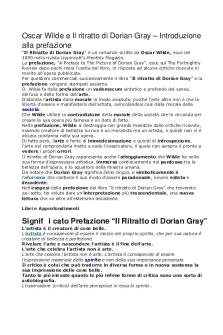Preface to Shakespeare DOCX

| Title | Preface to Shakespeare |
|---|---|
| Author | Raman Khatkar |
| Pages | 3 |
| File Size | 15.6 KB |
| File Type | DOCX |
| Total Downloads | 134 |
| Total Views | 291 |
Summary
Clearly bring out the critical value of the ‘Preface to Shakespeare.’ What are its main merits ? What is the place in the history of Shakespearean criticism ? December 16, 2010 neoenglish Practical Criticism Dr. Johnson’s Preface to Shakespeare is a classic of literary criticism. It displays all Joh...
Description
Clearly bring out the critical value of the 'Preface to Shakespeare.' What are its main merits ? What is the place in the history of Shakespearean criticism ? December 16, 2010 neoenglish Practical Criticism Dr. Johnson's Preface to Shakespeare is a classic of literary criticism. It displays all Johnson's gifts at their best—the lucidity, the virile energy, the individuality of his style; his sturdy commonsense and discernment; and his massive knowledge of the English language and literature. In his criticism of Shakespeare he is above his usual political, personal, religious and literary prejudices. His judgement here is impartial and objective. He mentions both the merits and faults of Shakespeare like a true critic. He is very honest and sincere in his estimate of Shakespeare. He is able to free himself from the shackles of classical dogma and tradition. In an age of classicism he dismisses the classical concepts of the unities of Time and Place. He tests Shakespeare by fact and experience, by the test of time, nature and universality. His defence of tragi-comedy is superb and still unsurpassed. He has excelled his guru Dryden. He fnds Shakespeare great because he holds a mirror to nature. In minimizing the importance of love on the sum of life, Johnson anticipates Shaw. His enumeration of faults in Shakespeare in itself is a classic piece of criticism. These faults he fnds are owing to two causes—(a) carelessness, (b) excess of conceit. "The detailed analysis of the faults" says Raleigh, "is a fne piece of criticism, and has never been seriously challenged." Shakespeare's obscurities arise from (a) the careless manner of publication; (b) the shifting fashions and grammatical licence of Elizabethan English; (c) the use of colloquial English, (d) the use of many allusions, references, etc., to topical events and personalities, (e) the rapid fow of ideas which often hurries him to a second thought before the frst has been fully explained. Thus many of Shakespeare's obscurities belong either to the age or the necessities of stagecraft and not to the man. "In my opinion," concludes...
Similar Free PDFs

Preface to Shakespeare
- 3 Pages

0.1 Preface to Public Lawe
- 2 Pages

PREFACE deka
- 1 Pages

Intro-to-Shakespeare-and-Macbeth
- 4 Pages

2-Osiander\'s Preface
- 2 Pages

Shakespeare = Marlowe
- 18 Pages

Shakespeare CA
- 10 Pages

Shakespeare Presentation
- 4 Pages

William Shakespeare
- 3 Pages
Popular Institutions
- Tinajero National High School - Annex
- Politeknik Caltex Riau
- Yokohama City University
- SGT University
- University of Al-Qadisiyah
- Divine Word College of Vigan
- Techniek College Rotterdam
- Universidade de Santiago
- Universiti Teknologi MARA Cawangan Johor Kampus Pasir Gudang
- Poltekkes Kemenkes Yogyakarta
- Baguio City National High School
- Colegio san marcos
- preparatoria uno
- Centro de Bachillerato Tecnológico Industrial y de Servicios No. 107
- Dalian Maritime University
- Quang Trung Secondary School
- Colegio Tecnológico en Informática
- Corporación Regional de Educación Superior
- Grupo CEDVA
- Dar Al Uloom University
- Centro de Estudios Preuniversitarios de la Universidad Nacional de Ingeniería
- 上智大学
- Aakash International School, Nuna Majara
- San Felipe Neri Catholic School
- Kang Chiao International School - New Taipei City
- Misamis Occidental National High School
- Institución Educativa Escuela Normal Juan Ladrilleros
- Kolehiyo ng Pantukan
- Batanes State College
- Instituto Continental
- Sekolah Menengah Kejuruan Kesehatan Kaltara (Tarakan)
- Colegio de La Inmaculada Concepcion - Cebu






